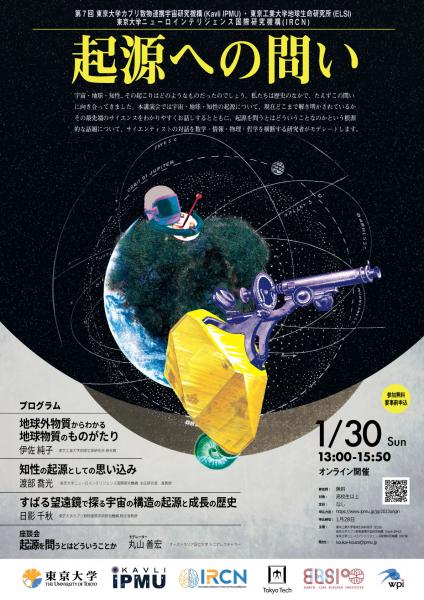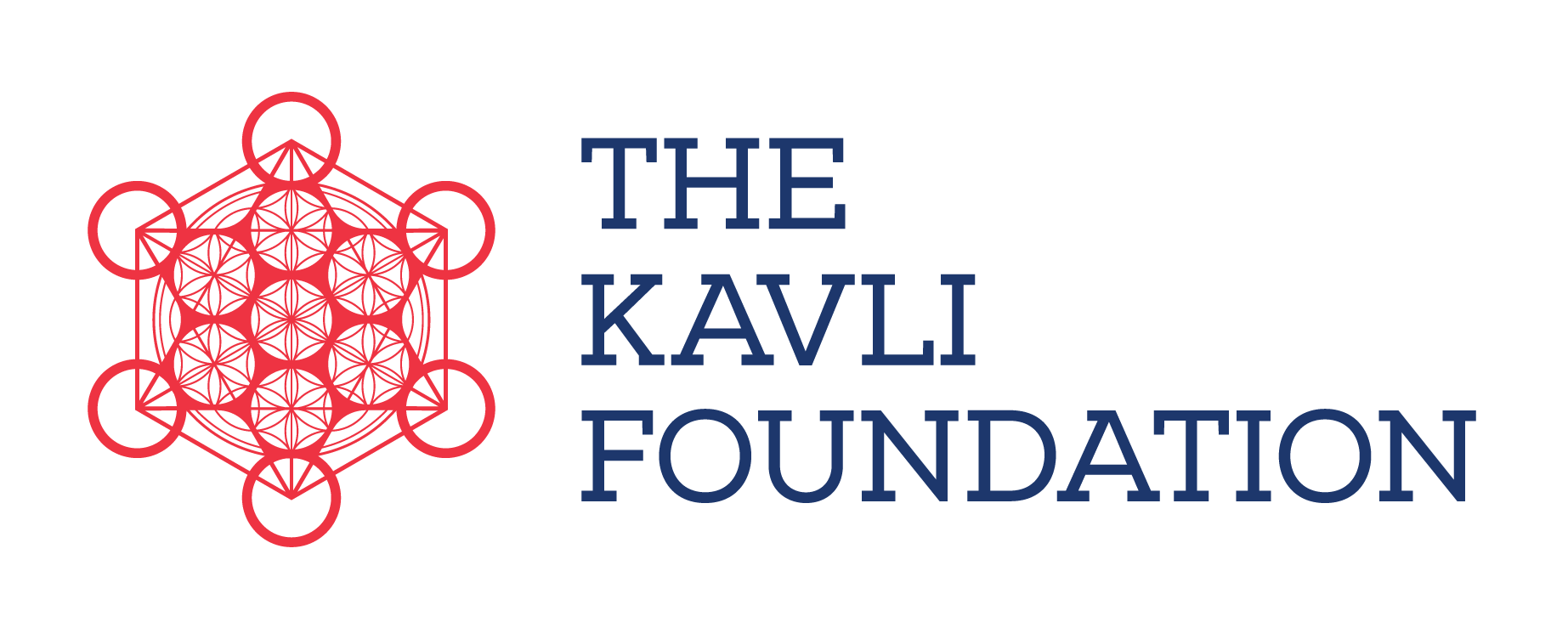December 15, 2021
Kavli Institute for the Physics and Mathematics of the Universe (Kavli IPMU)
On January 30 (Sun), we invite you to take part in our upcoming online event, the 7th Public Lecture series "A Question of Origins", jointly hosted by the Kavli Institute for the Physics and Mathematics of the Universe (Kavli IPMU), the Tokyo Institute of Technology's Earth-Life Science Institute (ELSI). Continuing on from last year, the event will be co-hosted by the University of Tokyo's International Research Center for Neurointelligence (IRCN).
The Universe, Earth, Human Intelligence. How did it all begin? Throughout history, humans have always asked this question. In this event, researchers will talk about how far science has come to uncover the origin of the Universe, of Earth, and Human Intelligence. They will also discuss what it means to study the origin of something, moderated by a researcher who has crossed roads with mathematics, information sciences, physics and philosophy to discuss and think about what it means to look for an origin.
Program
13:10-13:45
Lecture 1
A tale about understanding materials on Earth by looking at materials from outside Earth
Speaker: Junko Isa (ELSI Research Scientist)
What materials came together to create the Earth. Yes, it is a good idea to look up raw materials, but the problem is that there are no longer any materials left on Earth in the condition they were in when the Earth was created. But within the solar system, there are materials that have remained unchanged since their creation. There are materials that weren't able to form planets. In order to understand the beginning of our solar system, we study materials from outside Earth. This talk will go over what those materials have taught us about Earth, and about our solar system.
13:45-14:20
Lecture 2
The Assumption about the Origin of Human Intelligence
Speaker: Takamitsu Watanabe (IRCN Principal Investigator, Associate Professor)
What mechanism allows for human intelligence? Advances in cognitive neuroscience and artificial intelligence research have allowed us to inch closer to see the nervous system and establishment of precise and adaptable high intelligence from a reinforcement learning and predictive coding system perspective. However, it would be difficult to explain all of human intelligence using this paradigm alone. Predictive coding is too cautious, and is weak when it comes to creativity, new ideas and all sorts of logical thinking. But perhaps this could introduce a new hypothesis, such as one arguing that often disapproved overadaption or assumption is an origin of human-like intelligence . I will talk about this from a neuroscience and neuropsychology perspective.
14:30-15:05
Lecture 3
Uncovering the structure, origin, and growth of the Universe with the Subaru Telescope
Speaker: Chiaki Hikage (Kavli IPMU Project Associate Professor)
In the universe, there are large structures where entire solar systems, stars, galaxies, and clumps of galaxies come together to create a beehive-like structures. The root of such structures are said to be tiny fluctuations in spacetime that occured right after the birth of the Universe, 13.8 billion years ago. Mysterious "dark matter" and "dark energy" make up 95 per cent of the universe, and drive the growth of the Universe today. In this talk, I will introduce research using the Subaru Telescope produce astronomical data that helps researchers study the structure and growth of the universe, getting us that much closer to unraveling what dark matter and dark energy is.
15:05-15:50
Discussion
What does it mean to study an origin
Moderator: Yoshihiro Maruyama (Australian National University Senior Lecturer)
What does it mean to study an origin of something. We will have a discussion between researchers from different fields of expertise, spanning across mathematics, information sciences, physics, and philosophy.
Summary
Kavli IPMU Fundamental+ Project
A series of events where Kavli IPMU researchers have exchanged discussions with experts from different disciplines. Click here for a full list of past events.







